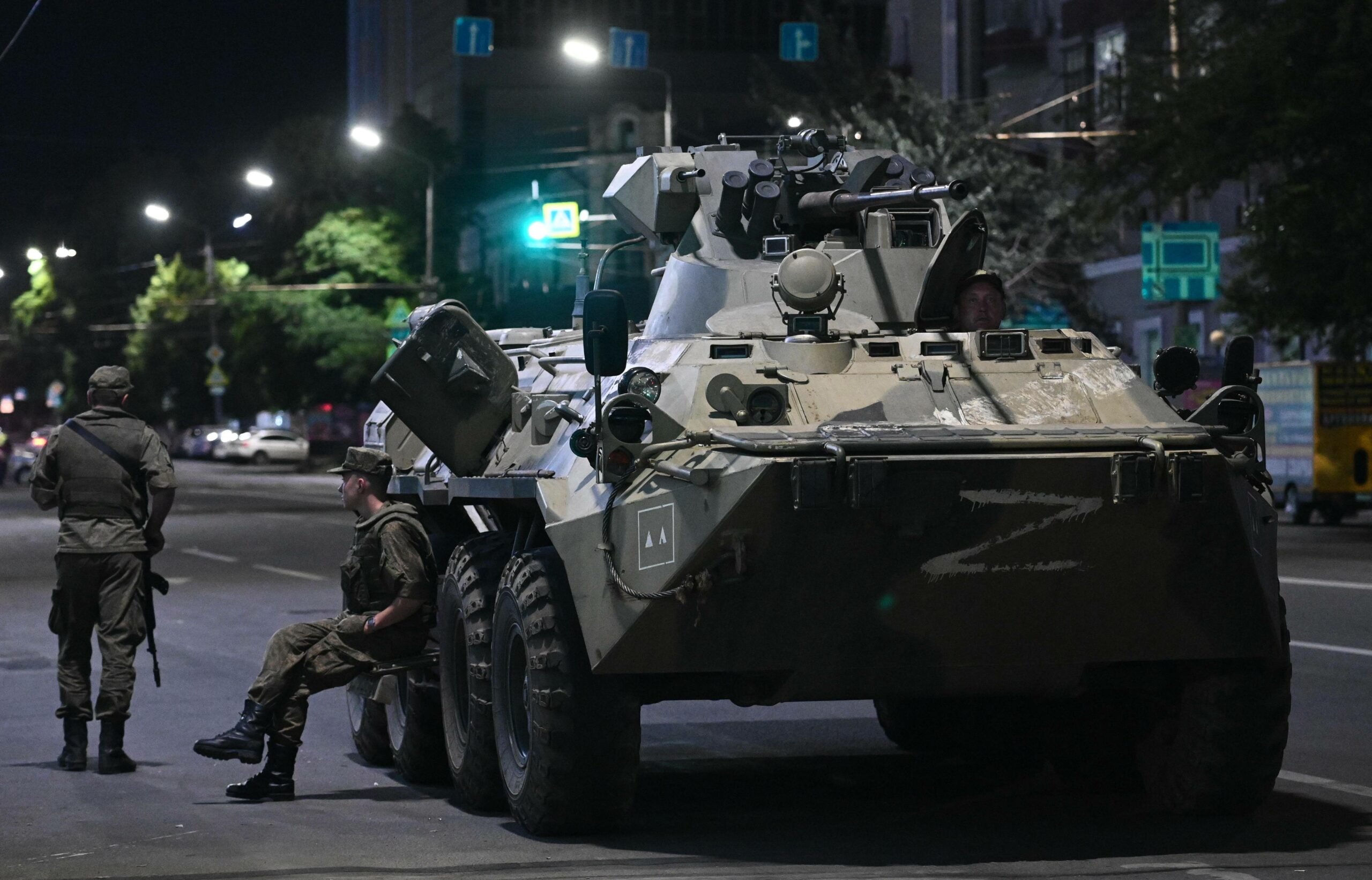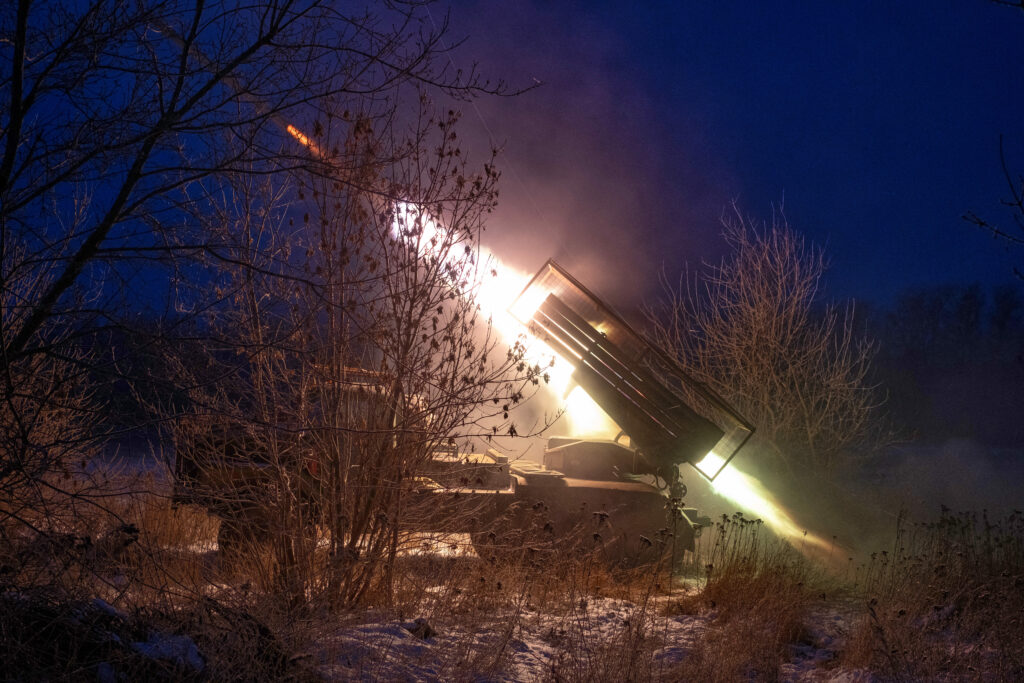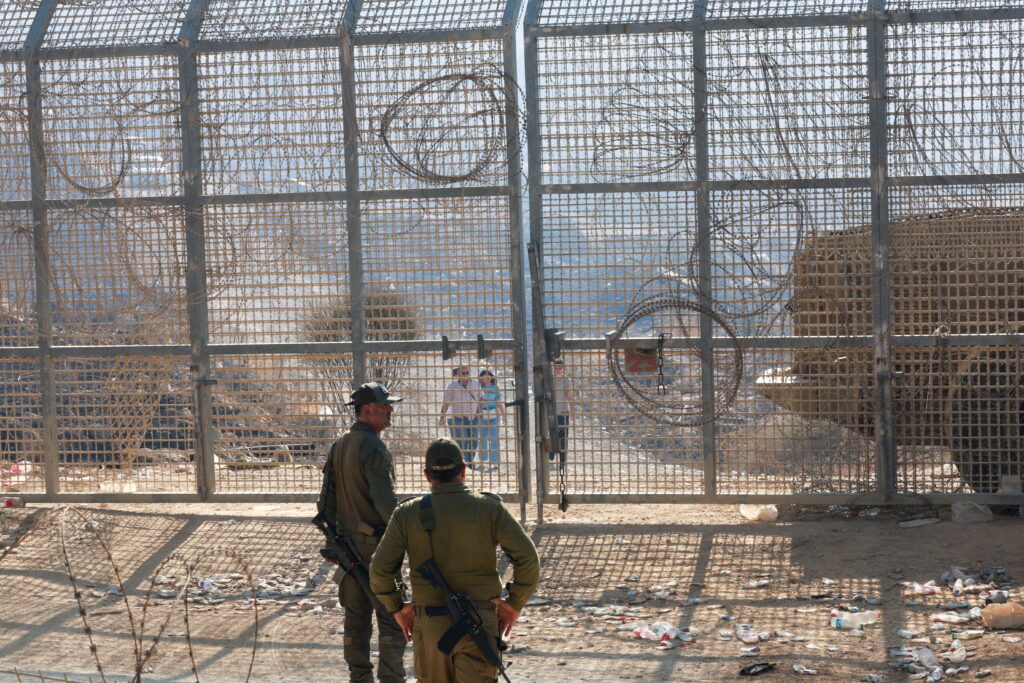On June 24, Wagner chief Evgeny Prigozhin launched a rebellion against the military leadership of Russia, and by many others’ measures, against President Putin himself. The abandoned rebellion has profound implications for the entire country. Yet Prigozhin’s «March for Justice» reverberates more strongly throughout the North Caucasus republics for three reasons: (1) proximity, (2) they all belong to the Southern Military District, the headquarters (SMD HQ) of which were occupied by Wagner mercenaries, and (3) troops from Chechnya and Dagestan were deployed to suppress the uprising. For Chechnya in particular this weekend was a test—if not by direct order, then certainly by appearance—as Ramzan Kadyrov for several months pragmatically formed a partnership with Prigozhin based on their mutual critique of the military leadership.
On the day of the rebellion, all of the North Caucasus republics’ governors issued, at least, basic statements of support for President Putin. Opposition groups struggled to produce any response at all, much less a coherent one. Resulting from June 24’s events, some difficult conclusions can be drawn about resistance; just as importantly, other conclusions cannot be made about public opinion.
Dagestan
Governor Sergei Melikov initially condemned the rebellion, assuring his republic’s residents there was no spillover of instability. He echoed the official line that Russia has «become stronger”—despite armed rebels being able to seize major regional security centers without resistance. Beyond Melikov’s statements, Dagestani Rosgvardia members allegedly accompanied the more numerous Chechen forces to Rostov and Moscow.
One of the most significant events after the uprising was when President Putin visited Dagestan, ostensibly to promote tourism. He conducted a supposedly unplanned visit to Derbent, resulting in a crowded publicity stunt. The event was blatantly inspired by Prigozhin’s own exit from Rostov, when several residents bid the warlord farewell with a not-so-subtle air of gratitude. There are several factors explaining Putin’s visit: it coincided with Eid al-Adha, with the president traveling to one of Russia’s main Muslim regions for one of Islam’s main holidays; Putin would look somewhat foolish if he appeared in the same place as Prigozhin, and since Krasnodar is too close to/Ukrainian firing range, Dagestan is the next most significant federal subject in the region; Putin sought to reward Melikov’s staunch support over the weekend, plus the Dagestani administration’s superfluous efforts during last September’s mobilization drive.
The Dagestani opposition attempted to provoke shows of resistance, but with limited success. «Utro Dagestan» attempted to spark a graffiti protest with the phrase «Dagestan without Russia.» Only a few instances of the spraypainted slogan were shared, including some allegedly from Moscow. Dzhabrail Mirzoev, head of the Dagestani National Center and leader of the Free Dagestan movement, stated that it is better «if our enemies [i.e., Wagner and the Kremlin] increasingly destroy each another.» Utro Dagestan previously organized the anti-mobilization protests last fall; Mirzoev has organized Dagestani resistance in Ukraine, such as the Imam Shamil Battalion. Despite the chaotic opportunity provided by Prigozhin’s rebellion, the Dagestani opposition failed to replicate their success at organizing demonstrations as they did last September.
Chechnya
Ramzan Kadyrov was slow to comment on the unfolding events. When he finally addressed Wagner’s rebellion, he indicated his support for President Putin, with other senior officials echoing this message. This was the broadest list of supporting officials for a North Caucasus republic, with Kadyrov once again going over-the-top to demonstrate the support from his administration.
The Chechen governor also revealed that several units of kadyrovtsy had deployed to Rostov and Moscow. The MoD’s Akhmat Group and North-Akhmat traveled from their base in Marynivka, Donetsk to Rostov. Other, unknown kadyrovtsy were also spotted in Aksai at roughly the same time the convoy from Donetsk was seen in Chaltyr, with Rostov-on-Don between them, suggesting another deployment from Chechnya. Members of four Rosgvardia units deployed to Moscow: the 94th and 96th regiments and the Sever and Yug Battalions. They patrolled Kolomna, Moscow Oblast, allegedly under Adam Delimkhanov’s command, although he was still absent from media at the time. Delimkhanov’s bodyguard Sultan Rashaev was definitely in Kolomna, seemingly leading according to one video. While the Moscow contingent certainly was far from encountering the Wagner convoy, Alaudinov claimed his men in Rostov were within a few hundred meters of Wagner fighters, despite there being no eyewitnesses confirming this. Had the Defense Ministry allowed them to engage, the kadyrovtsy probably would have proved ineffective.
It is still unknown why the kadyrovtsy specifically were deployed to counter Prigozhin. Apti Alaudinov writes that Putin ordered the Akhmat Group to Rostov, which still does not explain the decision-making process. Was it the president’s own idea? Did Kadyrov offer his troops? Did military leaders want to test Kadyrov’s loyalty? It could be any combination of these. Whether Putin can maintain peace between Kadyrov and the senior siloviki remains to be seen.
Regardless of the reasoning, the kadyrovtsy were again given an extremely public task, and a prestigious one at that, considering Putin called Prigozhin‘s mutiny «betrayal» and «treason.» While popular opinion about the kadyrovtsy has not been measured, Kadyrov’s approval rating increased over the weekend.
Curiously, during the chaos, the Chechen governor withdrew «Akhmat» from Belgorod, where it had been deployed in the wake of several incursions in Ukraine. It is unclear if the unit was Akhmat Group or West-Akhmat, as kadyrovtsy units are frequently mislabeled as «Akhmat Group» and Kadyrov only confirmed West-Akhmat’s deployment. The timing of the decision is curious. While it could have been benign, it is possible the unit was a reserve force to counter Wagner, as Belgorod was close to the convoy’s route. West-Akhmat has since redeployed to the front in Ukraine.
After the day’s events concluded, Kadyrov announced that he had spoken with Prigozhin. The Chechen governor claims to have «persuaded him to abandon his business ambitions and not mix them with matters of national importance,» contrasting with even Prigozhin’s explanation that the military was seeking to eliminate Wagner. Kadyrov’s self-described exchange lacks factual accuracy, and the best way to interpret it is as venting sentiments toward his former partner.
Only two diaspora opposition figures issued statements on the day: Dzhambulat Suleimanov, the head of the «United Force» movement, and Akhmed Zakayev, a former Ichkerian official now leading the «Cabinet of Ministers» as the declared Prime Minister-in-exile. Suleimanov addressed Chechnya’s residents, albeit in Russian and English, attempting to incite a rebellion to «return Chechnya to the Chechens.» He further proclaimed his movement’s readiness to oversee a provisional government until elections and an independence referendum were conducted. Zakayev’s camp criticized Suleimanov’s plan for a referendum, reasoning that Dudayev already declared independence. Suleimanov responded by asserting the referendum’s necessity to re-establish domestic and international legitimacy for Ichkerian state institutions. While Suleimanov has more international traction than Vayn Siy, but neither Zakayev nor the international community has not adopted a stance on these issues. Zakayev, for his part, did not issue any statement until after Wagner had returned to their bases. Most groups who had previously attempted to provoke or conducted resistance in Chechnya, like 1ADAT or the Sheikh Mansur Battalion, did not issue statements.
Ingushetia
Mahmud-Ali Kalimatov’s statement of support for the Russian president included a rather intriguing remark: «I want to underline that Ingushetia, in all hard times, stood in line with the defenders of the Motherland.» Kalimatov’s comments were echoed by the Ingush Council of Elders, which lacks public trust, but is still significant because of how the authorities attempt to influence society through it. Kalimatov and the Council of Elders both reference Ingushetia’s 1991 decision not to secede. This rhetorical point is interesting due to its «we did not rebel» argument, despite Ingush society growing more oppositional to federal projects over the past five years. Mass protests in 2018 led the subsequently appointed Kalimatov to begin eliminating civil society and alternative voices, ending last November with raids on the Batalkhadzhintsy brotherhood. Additionally, Ingushetia’s men reportedly refused to mobilize last September, a phenomenon confirmed by criminal cases several months later. The precarious standing of Kalimatov, stemming from his failures to subdue the public, explains why he made such historically grounded appeals.
Meanwhile, the Turkey-based Committee for Ingush Independence (KIN) asserted that Prigozhin’s rebellion confirmed an impending «historic chance to gain our desired freedom» and that the events proved the necessity for the Ingush Liberation Army to protect from «terrorist groups such as Wagner PMC, the kadyrovtsy, and others.» This address curiously took a less provocative stance by attempting to use the June 24 chaos to build support, rather than call for immediate action like other opposition groups. Seemingly, the movement recognizes its current limitations.
Ossetia
North Ossetia’s head, Sergei Menyailo, strongly condemned the uprising and told Wagner’s Ossetians not to «follow criminal orders.» The governor concluded by requesting that residents not «succumb to provocations,» a common expression from the regions’ governors. Menyailo’s warning against provocations, however, indicated the serious fear of spillover chaos, as North Ossetia has been largely devoid of mass protests. One of the two Ossetian volunteer battalions, «Alaniya,» also issued a statement, thanking Wagner for protecting Russian interests in Syria and Ukraine but condemning the PMC’s uprising. Alaniya also stated it would accept Wagner fighters, particularly Ossetian soldiers. Whether any Wagnerites have transferred units is not clear. Overall, Menyailo and «Alaniya’s» reactions contain nothing surprising, being regionally adapted versions of standard statements of support.
Kabardino-Balkaria, Karachay-Cherkessia, & Adygea
The three western republics reacted to the nearby crisis in relatively unnoteworthy manners. Kabardino-Balkaria governor Kazbek Kokov’s video address conveyed the standard «strength in unity» official line. Surprisingly, he did not indicate any concern for spillover instability, despite his repressive campaign over the past several months. Karachay-Cherkessia head Rashid Temrezov likewise expressed sentiments of support and unity, also announced that he had met with law enforcement leaders and implemented additional anti-terror and safety measures. Adygean governor Murat Kumpilov, in a series of messages, communicated his support for Putin and a «business as usual» attitude. Despite their proximity to Rostov, the western republics in the North Caucasus generally seemed less concerned about spillover instability, with the exception of Temrezov in Karachay-Cherkessia.
Conclusions: deployments, resistance, and public opinion
Suffice to say, there remain many unanswered questions about how the events on June 24 came to pass, and what their repercussions will be for Russia, especially for regions like the North Caucasus, which are considered restive.
The weekend’s events showed how opposition groups, particularly in the diaspora, struggle to provoke action in the North Caucasus. In Chechnya, for instance, Diaspora leaders were slow to issue statements, with opposition movements like 1ADAT and Niyso silent, despite increased opportunity for action while the federal center was preoccupied with Prigozhin. More elite kadyrovtsy units and commanders were out of the republic than at any time since February-March 2022, when there was the least number of kadyrovtsy in the republic. It was not as if there was a media blackout; people knew of events.
Rather, the failure to mobilize speaks to the struggle of building momentum for public action. In other words, opposition movements could not increase pro-independence sentiments and/or activate such sentiments. Diaspora oppositionists, stuck abroad, rely on local actors. Under current conditions, such domestic resistance is unlikely to emerge, sans systemic change.
The ease with which Wagner seized regional security centers in Rostov and marched on Moscow would presumably embolden those sympathetic to North Caucasus independence. After all, local insurgencies would not have to march on Moscow, just remain within a region. However, the military would respond significantly more than it did against Wagner. A fewincidents of militant and armed partisan action have occurred across the North Caucasus since last fall, but they have been isolated and prompted harsh crackdowns.
Related to this struggle to mobilize is gauging public opinion. Many commentators attempted to generalize broad support of the Russian public based on Putin’s Derbent publicity stunt and its precipitator, Prigozhin’s crowd in Rostov-on-Don. With currently available information, public attitudes cannot be determined from either event. With respect to Derbent, publicity stunts in the North Caucasus are often artificially constructed using state employees’ forced attendance. Putin has also falsified demonstrations of public support. We simply do not know who the people were in the crowd in Derbent.
When discussing what conclusions can be made from the event, there are even more serious issues. The crowd that greeted Putin, like the several dozens who seemingly supported Wagner in a city of over one million, hardly qualifies as a representative sample for a larger population. Extrapolating Russian public opinion from the apparent sentiments of these crowds is methodologically unsound. In fact, the Levada Center reported that Prigozhin’s approval rating plummeted over that weekend. Between Prigozhin, Defense Minister Sergei Shoigu, Foreign Minister Sergei Lavrov, and Kadyrov, only Kadyrov’s approval rating improved.
The overall takeaway from Prigozhin’s mutiny and its reverberations in the North Caucasus should be that public opinion is difficult to gauge in the current circumstances. Even then, it represents opinion only, not an intent to act.










